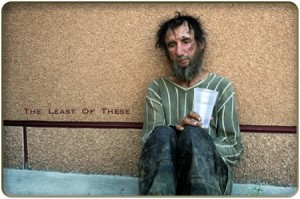 Every once and awhile I hear people complaining about the lousy christian music that they were force fed when they were kids. I smile and nod, but honestly I don’t really have any idea what they were talking about. The tribe of churches I came from were skeptical of anything from other tribes, so we shunned the books, movies and music that was being peddled by evangelicalism. We had our way of doing things, and much of our energy was spent justifying ourselves…to ourselves. In other words, we were an echo chamber.
Every once and awhile I hear people complaining about the lousy christian music that they were force fed when they were kids. I smile and nod, but honestly I don’t really have any idea what they were talking about. The tribe of churches I came from were skeptical of anything from other tribes, so we shunned the books, movies and music that was being peddled by evangelicalism. We had our way of doing things, and much of our energy was spent justifying ourselves…to ourselves. In other words, we were an echo chamber.
The danger of an echo chamber is that the only voice you hear is your own. The inevitability of the political echo chamber began with cable TV and exploded with the internet. Now, you can completely cater your media experience to consist only of things that you already agree with. You’ve met people who only listen to radio, read blogs, and communicate with others who share their politics. Some days, all I want is to hear a few jokes from John Stewart, a story from Ira Glass and an episode of Doctor Who. The internet makes this customization not only possible, but normal.
I find this sad. I’m a full believer in a classic “liberal arts” education. I believe that, even if I don’t like it, having an understanding of algebra, art history and biology will make us better human beings. It breaks my heart to meet someone who doesn’t know what Tale of Two Cities or a quadratic equation is.
When it comes to theology, an echo chamber isn’t just sad, it’s dangerous. A key tennant of the Christian faith, which the western church struggles to articulate, is that everything we believe is rooted in mystery. We believe in a God-Man and a wind-like Spirit and a living lifestyle rooted in a future we have yet to see. Everything we do is rooted in mystery. This is not to say that there are not key, identifiable marks of orthodoxy. But the fact is there’s a lot we can’t know, and a lot of room to disagree.
Theological echo chambers allow you to create systematic theologies and take them to logical yet dangerous theological and practical extremes. This creates Reformers more calvinistic than Calvin, Wesleyans who become universalists and Anabaptist that withdraw to farms where no one can bother them. Practically, this creates religious arrogance. The tradition I come from (like many) is often mocked for assuming everyone else is going to hell. There might be some truth to that.
I believe in humbly seeking to hear from a multiplicity of voices. This means more than being open to hearing the arguments of the people that you disagree with. It means finding approaching life with a learning posture, assuming that even those that there are thing you can respect and emulate in everyone. And while you may come away believing what you always have, you’ll know better than ever why you believe it.
Here’s how I practice this: I attend seminary with people who have some elements of theology I disagree with. I work with a parachurch organization that trains leaders from a diversity of denominations. I listen to podcasts from Tim Keller (reformed/presbyterian) and Bruxy Cavey (anabaptist/wesleyan), Catalyst (seeker sensitive/event driven) and Iconocast (Christian anarchist). Don’t get me wrong, I have my favorites and I definitely have my opinions. But I’m better off because I learn to love and respect others.
Have you broken out of the echo chamber? Why or Why not?











 Tweets
Tweets